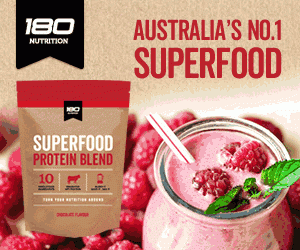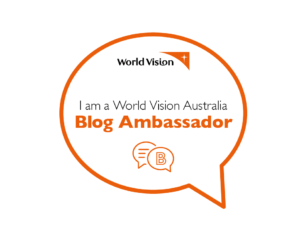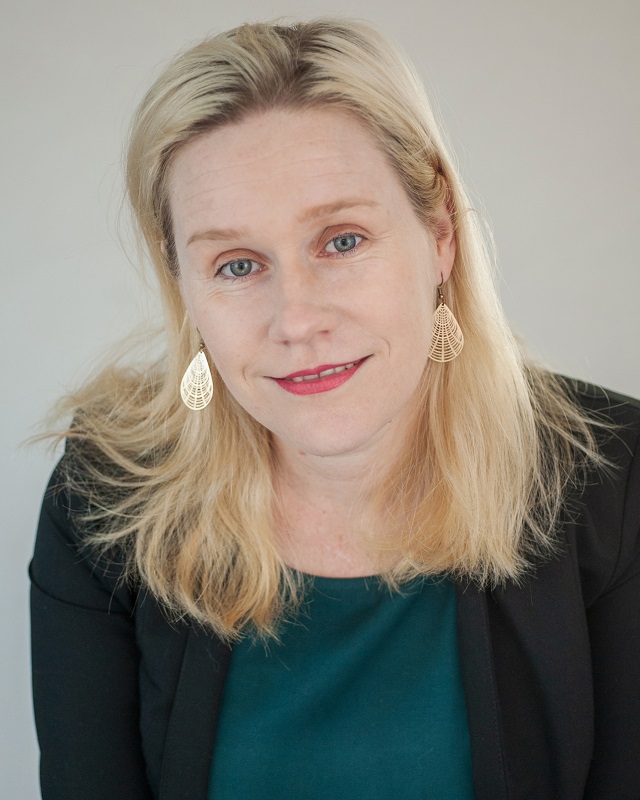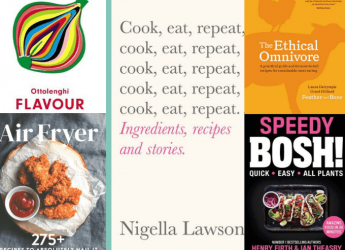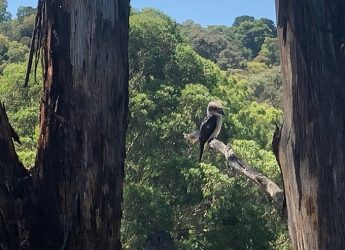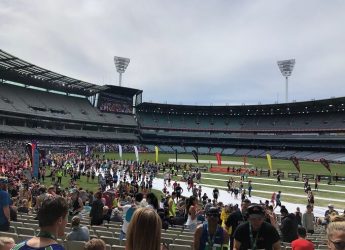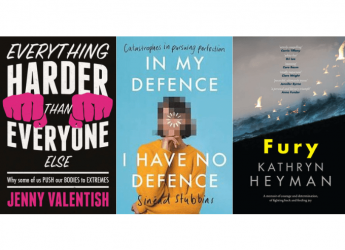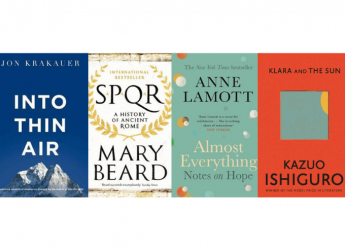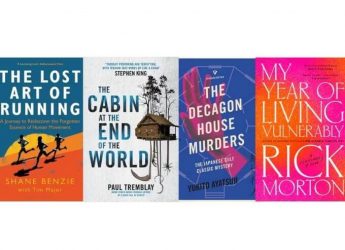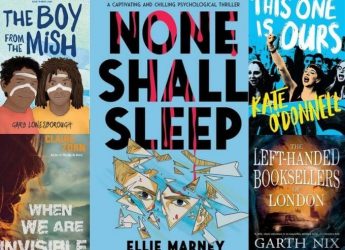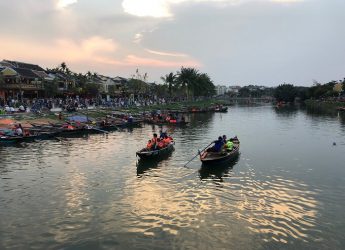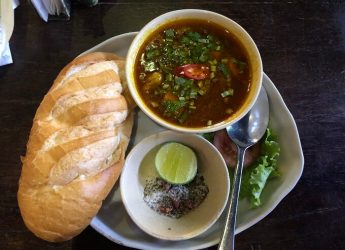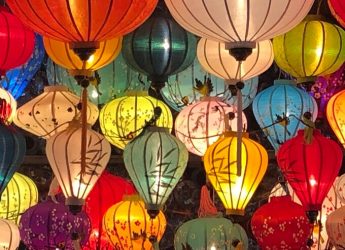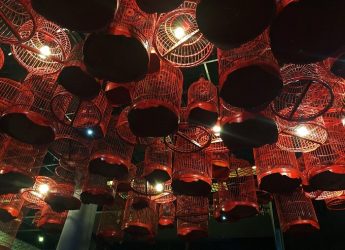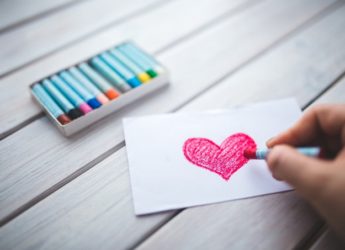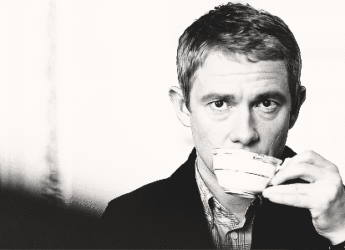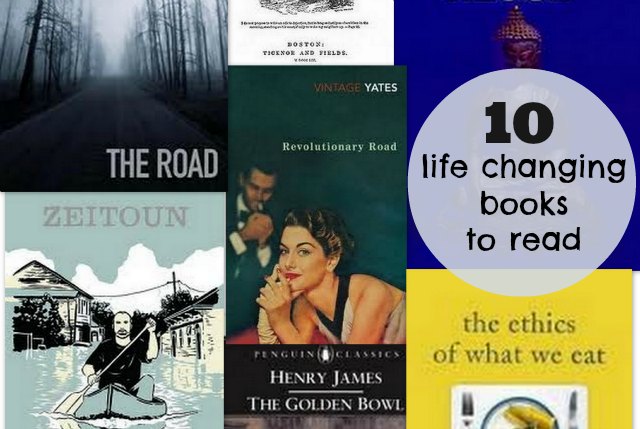
I was recently re-reading an essay by Peter Porter called ‘The Old Good Books’ where he talks about how our reading is shaped by our formative years and how our recollections of favourite texts are so ingrained because at the time they are competing with other texts (like study materials). He wonders if, as we mature, our reading habits change and condense. The rest of the essay concerns itself with his returning to favourite works of his earlier reading life and how his opinions of these still stand (or don’t).
It got me to thinking about my own favourite books. There is an attraction to linger on past pleasures (his reference to Freud is interesting), but what of those we have recently experienced? I’ve read books since the turn of the century (around about the time where I traditionally ‘came of age’ at twenty-one) that have impacted me just as much, if not more so, than what, say, Jane Eyre did when I was eighteen.
I wanted to ask some other of my writerly and readerly friends their opinion, so I shot around an email asking them what has been the most life changing book they’ve read in the past ten or so years? I chose ten years because it was a nice round number and has an expansive, almost ‘generational’ ring to it. The book didn’t have to be a new release at the time, just one that clanged, that resonated, within.
Happily, they helped.
Here are their answers.
The Golden Bowl by Henry James
For me, The Golden Bowl is an antidote to caricatures. Not only literary caricatures, but also everyday ones: the masks we make of one another’s psyches. In the American heiress Maggie Verver, James gives a understated, patient portrait of innocence and its loss. As she negotiates her husband’s infidelity, she becomes calculating – but with delicacy, restraint, charm. In the end, she is more than a cool victor – she is irresistible. And all this happens quietly: in a private world of married minds. Forget haters who whinge about James’ prose. Slow and subtle are virtues in the world of literary psychology.
Damon Young is an author and philosopher and blogs at Darkly Wise, Rudely Great.
Siddhartha by Herman Hesse
In 2002, I was a punk of a man; arrogant, righteous and deeply unhappy. On a day in July I picked up Herman Hesse’s Siddhartha from the local library. I read it in one sitting, sobbing as I reached the last line. I woke my girlfriend to tell her that although I wasn’t great at showing it, I loved her very much. I closed the bedroom door and went back to the couch, thinking strange, how life can just flip on you like that.
Laurie Steed is a writer, reviewer and PhD student. His blog is The Gum Wall and is @lauriesteed on Twitter.
Zeitoun by Dave Eggers
This is a book everyone should read or be exposed to, in my opinion. If not only for Eggers’ stylistic writing approach, but for the raw power of the human stories told within and the grim reminder of the extremely thin patina of ‘civilisation’ that holds our kind’s baser motives in check. An appreciation of our ‘better angels’ appears to be in even greater and more urgent demand than I had hitherto thought.
Jim Collings is @caldron_baidu on Twitter and is a gentleman of the interwebs. He can be found at Goodreads.
Walden by Henry Thoreau
“I went to the woods because I wished to live deliberately, to front only the essential facts of life, and see if I could not learn what it had to teach, and not, when I came to die, discover that I had not lived.”
I first read my lovely copy of Walden in 2001 when I was twenty, and I re-read it each year to remind myself of how I want to think. Thoreau’s account of his two self-sufficient years living apart from society in the forest is a meditation on what is really necessary, and a non-too-subtle hint that if I bury myself too far under a mountain of distractions, expectations, and stuff I don’t really need, I might just miss something amazing.
Anna Ryan-Punch is a poet, reviewer and librarian. Her blog is four hundred years ago, a baby went to sleep and is @ARPy_ on Twitter.
The Mask of Motherhood by Susan Maushart
I read The Mask of Motherhood as a shell-shocked new mother, both flailing to hold onto my ebbing sense of self and gripped by a passionate love for my child that was rewarding and terrifying in equal parts. At the same time, my formerly equal relationship had somehow slid into a 1950s time-warp, as logic (and biology) dictated that I become a housewife with an allowance. Susan Maushart’s piercingly smart, witty, thoroughly researched book on the dark side of motherhood – the identity loss, the inequality, the shock it can deliver – helped me make sense of it all, and made me realise that motherhood is in many ways the final frontier of contemporary western feminism. I re-read it for a Melbourne Writers Festival session last year, and it remains just as resonant ten years on.
Jo Case is associate editor of Kill Your Darlings and social media coordinator for the Melbourne Writers Festival. On Twitter they are @kyd_journal and @MelbWritersFest
The Beauty Myth by Naomi Wolf
I first read The Beauty Myth when I was nineteen years old, a gender studies student eager to soak up the feminist classics. I loved the way Wolf gave words and a political framework to the needling sense of inadequacy I (and so many young women) felt in relation to my physical appearance; and as I spiralled into disordered eating in the year or two that followed, I would read the book over and over, as a form of emotional and intellectual therapy. As a professional writer, I also admire the way Wolf took what often feels like a very personal issue and showed how it fit into a much bigger social, historical and cultural picture. It’s something that I aim to do with my own work – and I hope my writing someday helps people the way Wolf’s writing helped me.
Rachel Hills is a journalist and blogs at Musings of an Inappropriate Woman. She is on Twitter @rachelhills
Madeline’s World: the Biography of a Three Year Old by Brian Hall
When I was pregnant with my first child in 2002 I found a book in a second hand bookshop in Tasmania, and gave it to my husband to buy for himself. It was called Madeleine’s World: the Biography of a Three Year Old by Brian Hall. I noticed the cover first, the gleam of mischief in Madeleine’s vividly blue eye, the daisy in her hair, the nostalgic texture of the lawn beneath her fanned out hair. As it turns out, she is not unlike Frederique. The book was forgotten. When Fred was about six months I pulled it off the shelf and read it for the first time and I have reread it many times since then. Fred grew up in parallel to Madeleine.
There are many layers to Hall’s project. For me one of the most transcendent is the way he writes about everyday, domestic experiences with poetic magnetism and vivid visual interest. I am as fascinated by his laundry as I am by his intelligent theories about evolution and human behaviour. He also shows how children develop and explore themselves within the embrace of books, and as a writer and reader, I found this utterly compelling. Elegantly, Hall manages to map the trajectory of Madeleine’s initiation into the forces of life and death, and we grieve for Madeleine as she realises that her hard-won selfhood means recognising for the first time her own mortality and the transience of the world around her. It changed me as a parent, not in a practical sense, but in the way I contemplate my experiences and that is a gift for which I could never thank Brian Hall enough.
Penni Russon is an author and can be found at her blog eglantine’s cake and is on Twitter @eglantinescake
My bookshelves are full of books about writing. Most of them unread – mostly because I’ve realised that reading about writing will not get my writing done. The only one I have ever got all the way through, and in one sitting, is Stephen King’s On Writing. The man is so good, he can write a page-turner about writing a page-turner. I came to his book at a time that I was full of doubt. I was worried that my writing just wasn’t ‘high-faluting’ enough. That my natural voice just wasn’t… enough. Reading his book made me realise that the only voice that will ever work for you as a writer is your own. You write what you write. And if you’re lucky the rest of the world will love it. It also reminded me that writing for the love of it is the only way to write.
Allison Tait is a writer and journalist and blogs at Life in a Pink Fibro and is on Twitter @altait
Revolutionary Road by Richard Yates
I’ve realised that, as a reader, I am more interested in books that make me feel like I have come home (albeit with new understanding) than those that take me into completely unfamiliar territory. On this front, a book that literally left me reeling recently was Richard Yates’ Revolutionary Road. It is perhaps the most penetrating portrait of a marriage I have ever read. In one novel, Yates encompasses so much about the nature of long-term relationships: the dynamics we get caught in, our secret agendas and capacity for delusion. Also, the way seemingly small decisions can set the conditions of our lives. Yates also shows astonishing insight into a woman’s lot circa 1950s, when even the most educated were still at the mercy of society’s expectations and, in this case, the whims of her husband’s ego. On dialogue, precision of prose and emotional impact, I couldn’t fault it. And as a writer, Revolutionary Road reminded me why the domestic is as powerful a subject for writing as any other.
Rachel Power is an author and blogs at The Rachel Papers and is on Twitter @TheDividedHeart
The Ethics of What We Eat by Peter Singer and Jim Mason
In my early 20s, books about food production became popular, and like many others I read Not on the label by Felicity Lawrence, Fast Food Nation by Eric Schlosser and Globalization and its discontents by Joseph E Stiglitz. I felt my eyes opening, and felt uneasy about so much: food production techniques, food miles, factory farming, obesity, fast food, food marketing, additives; about everything really. This did not cause a radical change in my diet, but my eyes were opening. I quit eating from fast food chains and started visiting local markets.
Several years later, I considered myself to be an ‘ethical meat eater’, however, I was finding it increasingly hard to ignore how environmentally irresponsible eating meat is.
Then I picked up Peter Singers The Ethics of What We Eat. It sent me into a tailspin. It made me consider – again – the foods I was eating. This time, I seriously considered it. How did I feel about being a part of a chain of food production that made me feel sick to think about, and that was so unhealthy for the planet? My commitment to eating ethically was intellectually there, but I just didn’t picture myself as a vegan; it just seemed so radical and hardcore and weird. And anyway, I couldn’t give up cheese; I loved cheese. But that meant that my belief system was totally out of whack with my actions; didn’t that make me a hypocrite?
A month later I was vegan, and five years later I still am. As it turns out, going vegan was the most natural thing in the world for me.
Peter Singer can’t take all the responsibility, of course. I became vegan because of a food consciousness that developed across years of reading. But his book – concise, non-preachy, and devastating – was what spurred me into action. It was a book that changed me.
Lisa Dempster is Director of the Emerging Writers’ Festival. She recently rode her bike solo across the Nullarbor – inspiring! She is on Twitter @lisadempster
And as for me…
The Road by Cormac McCarthy
A few other books came close – A Farewell to Arms by Hemingway and Faust by Goethe, most notably – but The Road was a heart-ripper, a world-view changer (the poem I have coming out in Verandah 26 next week was partly inspired by the last two pages). I can’t quite see the same balance between love and apocalyptic destruction ever being struck again.
It’s impact can be seen in this short story:
One term I became friendly at gymnastics class with another mum who is also a big reader (how I loved her!). As we waited for our children we would often talk about what we were reading. One day she asked me what would I recommend for her next book. I suggested this one, but with the caveat that “it’s not a ‘light’ read”.
The following week we met again and she immediately said to me, “Oh! I finished The Road. I think I got through it in one night or two. It’s amazing!”
She leaned over closer and added, “And I’ve not eaten meat since. I can’t even look at it.”
I understood what she meant and I think those of you who’ve read the book might too.
*
This post was so much fun to put together – thank you to everyone who contributed, I know you are all busy, busy! It was so much fun I might do more! If there are others who’d like to volunteer to answer some questions, do let me know!
What’s been your life changing book?


